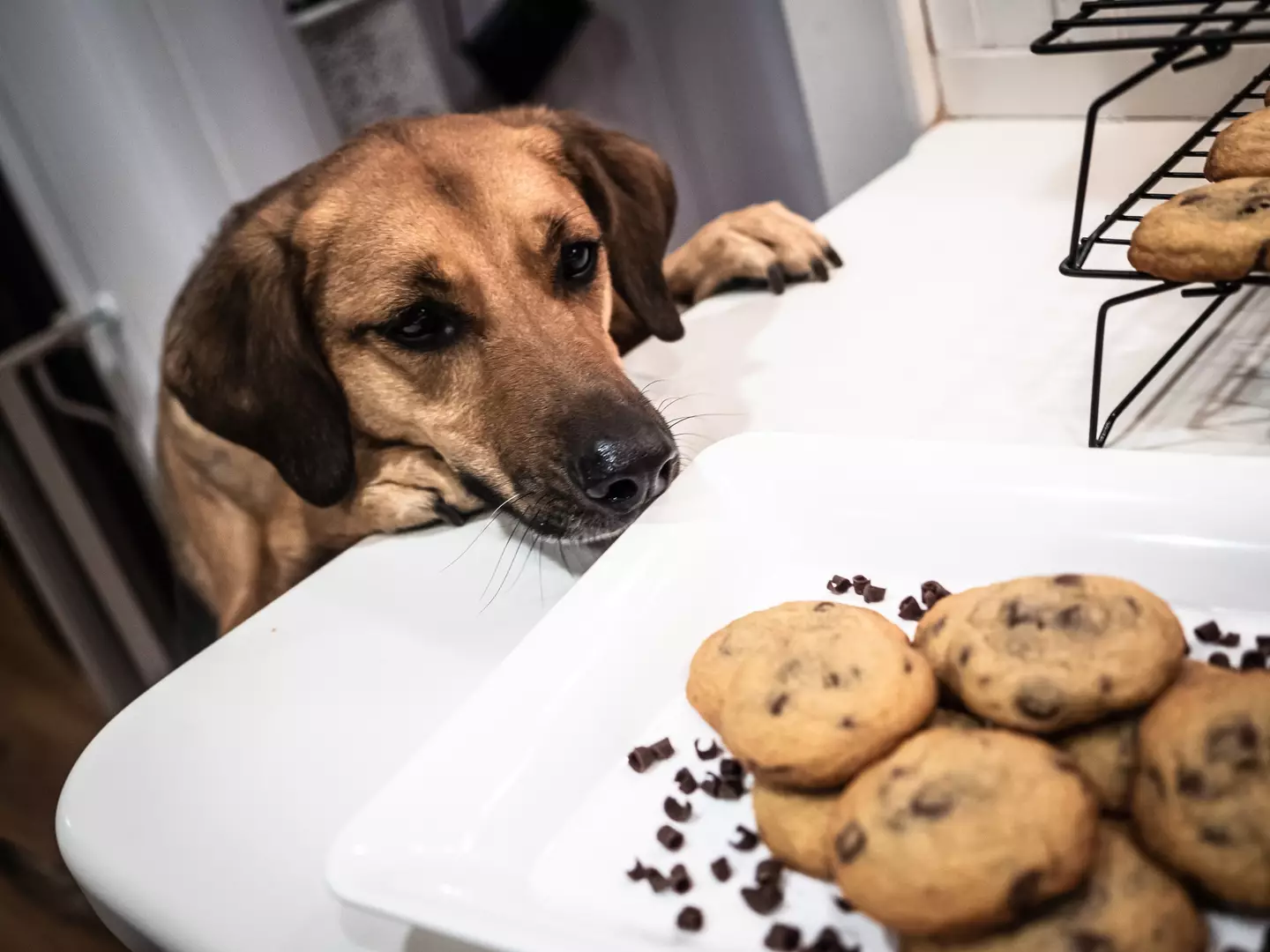
There’s nothing like celebrating the Christian Messiah dying for our sins quite like tearing through your bodyweight in chocolate eggs.
You can work up your appetite by partaking in a local Easter Egg hunt, and once you’re done elbowing small children out of the way you can hurry home to feast.
But it doesn’t matter how much your canine companion might want to get in on the action, they absolutely mustn’t be given any chocolate.
It’s not just an urban legend: dogs are deathly allergic to the stuff.
Advert

In time for the Good Friday/Easter Monday festivities, a vet has issued a reminder that chocolate and dogs don’t mix. You mustn’t give them any, and you must also be careful not to leave any where an intrepid snout might find it.
Peter Wright, a vet from Natural dog food brand Harringtons, has shared some advice for what to do if your dog finds its way into your chocolate stash.
"An odd chocolate or so is probably not going to do any harm, but a whole box or bar of chocolate can have very serious consequences," he says.
"Chocolate contains a stimulant called ‘theobromine’, which is safe for humans but not for our pets. Theobromine is much more concentrated in darker chocolate and, therefore, more dangerous."
Chocolate poisoning symptoms usually appear within six to twelve hours post-consumption, and they include:
- Hyperactivity
- High heart rate
- High temperature
- Vomiting
- Diarrhea
- Drinking more than usual
- Twitching
- Seizures
It’s important to keep tabs on your dog’s weight, along with the kind of and amount of chocolate they’ve eaten.
This information is vital for vets to know how much theobromine your dog has eaten so they can accurately judge how much medicine they will need.
If your dog is taken to the vet within two hours of eating the chocolate, your vet will likely induce vomiting by giving your dog some active charcoal. This can limit and reduce the theobromine absorption rate.
Past the two-hour mark, your dog will need intravenous fluids and antiarrhythmic medication to keep them stable and clear the theobromine from their system.
"Milder symptoms of chocolate poisoning include vomiting and diarrhoea, but in more severe cases, they can develop seizures, major heart problems and or even die," Wright continues.

"The vet will give a powerful emetic to make them vomit the chocolate back up. If not seen quickly enough, your loyal companion may need to be admitted for more intensive supportive therapy."
While we’re at it, there’s a lesser-known substance out there that’s safe for us but toxic for dogs: xylitol. Commonly used as a sugar substitute, the US’s Food and Drug Administration (FDA) has issued a warning that xylitol can be deadly for our pooches.
With that in mind, keep these common xylitol-containing foodstuffs away from your dog:
- Breath mints and chewing gum
- Packaged baked goods
- Cough syrup
- Chewable vitamins
- Mouthwash
- Toothpaste
- Peanut butter (other nut-based butters apply too)
- Over-the-counter medicines
- Dietary supplements
- Sugar-free desserts
If you’re ever unsure, read the ingredients list carefully before sharing anything with your dog.
Topics: UK Food
